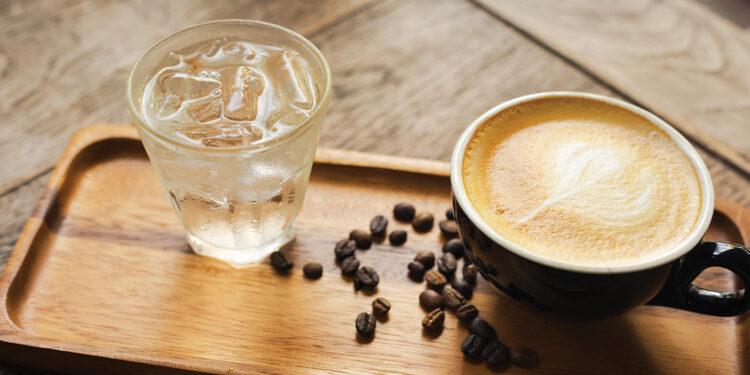I am a coffee addict. Black. No cream. No sugar. Bold. Decaf is not real coffee. It started in the 80’s while I was attending Brescia. Those 8 a.m. classes had me sliding in sideways to the Pinocchio’s café on campus just in time to grab a drink and make it to class. Survival. Fast forward to my mid-50’s and it’s so bad that if I run out of coffee, I’d rather make a trip to any store that’s open at midnight just to make sure I don’t fret overnight about not having any in the morning! Have a headache, grab a coffee. 3 p.m. drag, grab a coffee. Can’t get warm, grab a coffee! I felt triumphant against all the naysayers when they started touting all the benefits of coffee … until I was told I was dehydrated. What?! I drink all day – coffee, tea, soda, Kool-Aid!
After getting a 2-minute counseling session on why increasing my water wasn’t an option, and how I needed to reduce my coffee intake, I left vowing to drink more Kool-Aid. Listen – I’m that person that argued with the scheduler of my stress-test that it would add undue stress for me to go without caffeine before I took the test. I was only partially joking! Incidentally, I DID go without it – I’m stubborn, but I’m also a rule follower.
Then, after a health scare, I began drinking fresh lemon squeezed in my water daily. After about six months, I noticed the texture of my skin, nails, and hair all seemed to improve. I even noticed my headaches lessened, and my hunger seemed less severe. I was sharing this with my mother-in-law when she mentioned she’d increased her water and had even begun sleeping better! I thought it would have caused the reverse, which launched my frenzy of research on the benefits of water as we age.
If I’m being fully transparent, I was secretly hoping to find a way to count caffeinated coffee as water. I didn’t find it, but what I did find was that as we age, our body’s water makeup can go from 70% to 50% making it even more important that we stay vigilant with our intake.
Dehydration is a sneaky stinker. The symptoms of it vary from dark or infrequent urination, dry mouth, dry skin, feeling tired, having confusion, extreme thirst, having an elevated heart rate, low blood pressure, and muscle cramps – especially in the feet, legs, and hands. Most of the time, we don’t even realize we’re dehydrated. In fact, I argued that I couldn’t be dehydrated because I wasn’t even thirsty. After looking into it, I found that often, we don’t feel thirsty. In fact, we may even feel a flash of hunger. It’s recommended that if we feel hunger pangs, sip some water, wait 15 minutes, and if we’re still feeling hungry, it’s safe to say we’re hungry. If hunger goes away, it’s likely that we were just thirsty.
Feeling cold all the time? Me, too. It could be that you’ve not built your body’s internal water levels up enough to help regulate your body temperature. Why does this matter so much? Because it can cause heat stroke or exhaustion, even heart problems. Are you physically active outside in the heat? Do you fish, golf, do yard work? The increase in sweat requires a need to replenish the water and electrolytes in your body in order to maintain muscle mass, healthy organs, and even your overall immune system.
So how much water should we drink? For an active male, 15.5 cups or 3.7 liters of water per day is considered a good amount. Ladies, we get a little reprieve at 11.5 cups, or 2.7 liters per day. This should be discussed with your physician, as he or she may recommend more or less depending on your specific health plan.
If you’re put off by the thought of drinking plain water, do what I do and squeeze a little lemon or lime into it. Although I still haven’t given up my morning coffee, I have tried a recommendation of drinking a cup of hot water with lemon squeezed in it, and it is surprisingly satisfying! There are other sources of water that may agree more with your lifestyle, too, for example, skim milk, most fruits, popsicles, (who doesn’t like a popsicle?) broths and soups, just be careful of the salt content, and most vegetables, too. There are also flavor packets for water, but use caution because some have increased sugar, and other ingredients that may be hard on you, and plain water is processed more easily without the body having to work to process the additives.
Keep water with you and set a schedule. In the beginning, it may be helpful for you to set an alarm on your phone, or just keep a written log. They even make water bottles that alert you when you need to take sips!
I’ll likely never know what it feels like to go a whole day without caffeine, but I do know now just how much better it feels to be well-hydrated!










